Contemporary world politics make it necessary for nations to integrate into international unions in the interest of their own national security and economy. In these international unions, which are usually based upon geographic location, such factors as natural resources, trading blocs, and even cultural values play an important role. Many neighboring countries combine their resources under the auspices of such organizations, create defensive alliances, and cooperate on a wide array of issues. The goal of such unions is to preserve peace, control the arms race, resolve disputes through diplomacy, promote socioeconomic development, and protect fundamental human rights and democracy. At the present time, NATO, the OSCE, the EU, NAFTA, OPEC, ASEAN, the G-8, the D-8, and APEC are the foremost international political, military, and economic unions.
 |
These institutions are subject to organizational reforms because of new members or a widening of scope. All of these organizations, formed in the aftermath of the Second World War, have contributed to creating stability and order in the world and have played a major role in global socioeconomic development. Member nations protect their economic and military interests, and also acquire a stronger regional and international position. Even the developed world perceives the necessity of such partnerships. The creation of free trade zones, regional trade agreements, abolished customs controls, and even a common currency (as in the EU) safeguard the future of member states. Defensive pacts enable member states to reduce military expenditures and to divert those resources to cultural and educational fields.
A similar organization will provide considerable benefits to Muslim nations. For those that are desperate for technological as well as economic development, the foremost step toward stability is the creation of a central organization or, in other words, a unified Islamic world under the auspices of the Turkish Islamic Union.
Economic cooperation is necessary on two counts: stability and development. Muslim nations must bring stability and solidity to their economies. Developing industries and making the required investments is vital, as is the need for a comprehensive development plan and the simultaneous development of education, economy, culture, science, and technology. While various sectors are developed technologically, the labor force's educational levels and standards must be raised accordingly. Society must be motivated to become more productive, and the resulting economic cooperation will play a major role in eradicating poverty, illiteracy, the unjust distribution of wealth, and other socioeconomic problems rampant in Muslim countries. This partnership can be formed only by the creation of free trade zones, customs unions, and common economic areas.
Most Muslim countries have geostrategic importance as well as rich natural resources (e.g., natural gas and crude oil). These resources and strategic opportunities, however, are not being used effectively. In the Islamic world, 86% of the population's living standards fall below $2,000, 76% under $1,000, and 67% under $500 per year. When the Islamic world's total resources are considered,17 this is quite a paradox: Roughly half of the petrol consumed in the West is exported from the Islamic world, as is 40% of the world's agricultural production.18 Many economists and strategists freely admit that the world economy depends upon the Islamic world's oil and gas exports, in particular those of the Persian Gulf.19
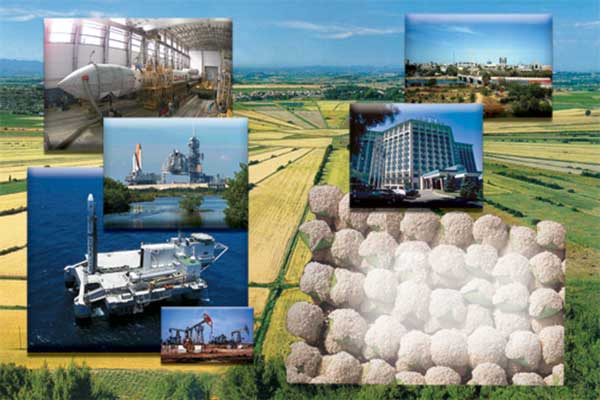 |
| Kazakhstan, which left the USSR in 1990, declared its independence in 1991. It has rich oil and natural gas reserves, and one-fifth of the former USSR's fertile agricultural lands. The Baykonur (Leninsk) Space Base, from which the first manned spaceship was launched, remains within its borders. |
The Persian Gulf holds two-thirds of the planet's discovered crude oil reserves. Data obtained from research concludes that Saudi Arabia alone holds 25.4% of the world's oil reserves, or 262 billion barrels. A further 11% is found in Iraq, 9.6% in the UAE, 9.2% in Kuwait, 8.6% in Iran, 13% in other OPEC member states. The rest is distributed across the remainder of the world.20 Research commissioned by the U.S. Department of Energy shows that between 2000 and 2020, oil exports from the area will increase by 125%.21 This means that the world will continue to meet most of its energy needs by imports from the Gulf region. Moreover, the Middle East has 40% of the global natural gas reserves; 35% of these reserves are in the Gulf region.22 Algeria, Libya, and other North African countries have 3.7% of the world's reserves.
The Caucasus and Central Asia are also rich in oil, natural gas, and other natural resources. For instance, Kazakhstan has between 10-17.6 billion barrels of proven oil reserves, and its natural gas reserves are estimated at between 53 and 83 trillion cubic feet. Turkmenistan has between 98 and 155 trillion cubic feet of natural gas reserves, making it the fourth largest producer.23 Some other Muslim countries have valuable mineral resources. For instance, Uzbekistan and Kyrgyzstan are two of the world's leading gold producers. Turkey has one of the world's richest boron reserves, only recently discovered to be very important, and Tajikistan has the world's largest aluminum producing facilities.
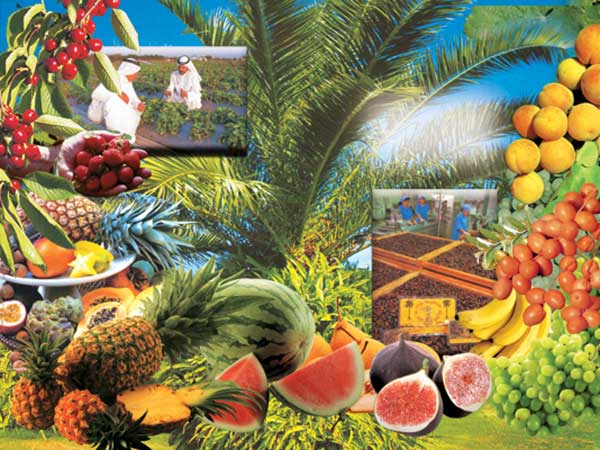 |
| Thanks to joint ventures, each Muslim country will benefit from the other country's experiences, and the investments will benefit both of them. Each country's different geography and economic conditions will turn into wealth and bring abundance. |
These advantages will become more important in the twenty-first century, which some have already christened the "energy century." Energy is an essential element of modern society in terms of the military, industry, urbanization, and transport. Given that economic activity and manufacturing depend primarily upon energy, nations will do their best to achieve control over these energy resources. The Islamic world is not using its resources effectively, for many of its members lack the infrastructure and technology to increase the production and use their natural resources to develop their industries. Therefore, the resources' contributions to the country's economy are limited to export earnings. These countries do not have the means to process their own crude oil, use it in their industrial complexes, or to develop their industries. Worse still, some Muslim nations do not even have the necessary means to explore and research their natural resources or to discover and extract them. Explorations undertaken by foreign companies reveal that other Muslim nations have oil and gas reserves, but they cannot benefit from their resources.
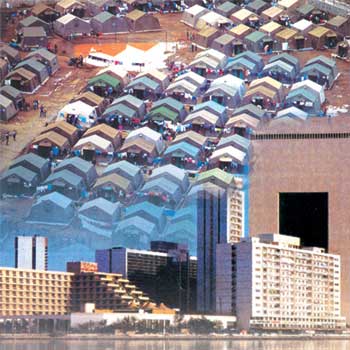 |
Naturally, the ineffective use of natural resources is not the Islamic world's only economic problem. However, solving this problem can begin the process of solving many other problems. The economies of Muslim nations contain differences in structure and functioning. Some nations' economies depend upon mineral resources, such as the members of OPEC, while other nations' depend upon agriculture. These differences are also reflected, to some extent, in their social structures, such as the widely varying degrees of rural and urban populations. Developing complementary relationships and helping each other in their respective areas of expertise can turn these differences into a source of riches. All of this will be possible with the Turkish Islamic Union.
Joint ventures and project partnerships will be an important step in the right direction, for they will enable countries to benefit from one another's experiences and the income earned from investment projects will benefit all of the participating countries. Such mutual financial support is compatible with Islamic morality, for helping the needy and having a sense of social responsibility are important characteristics that Muslims strive to acquire. With many verses in the Qur'an, Allah reminds Muslims to watch over the needy.
Society's internal cohesion must be extended to international relations. As international cooperation within a partnership cannot be one-sided, employment and income levels will rise in both countries. For example, one country will produce oil and another one will process it, and agriculturally dependent countries will be able to import the food they need from agriculturally developed countries. A manpower-poor country's need will be met by another Islamic country, while rich countries will be able to invest in and help out a manpower-rich country that does not have enough jobs for its people. This will be to the benefit of both. Sharing know-how and experience will increase prosperity, and all Muslims will benefit from technological developments.
Joint ventures that realize the Islamic world's unification of opportunities and means will enable Muslims to produce hi-tech products. The Islamic common market will make it possible for Muslim-made products to be marketed in other Muslim countries without the hindrance of customs, quotas, and other cross-border obstacles. The marketplace will grow, the market share and exports of all Muslim nations will rise, industrialization will speed up, and economic development will bring progress in technology. When all of this comes to pass, Muslim nations will operate as a consortium against other investment groups and will become an important part of the global economy.
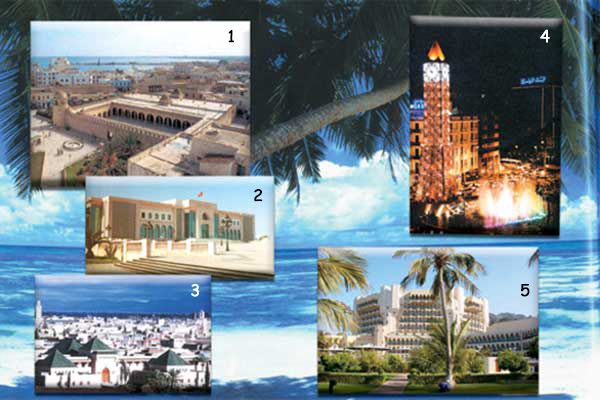 | ||
| Some of the Muslim countries: | 2. Tunisia | 4. Tunisia |
The living standards and wealth of Muslim nations will increase, and their existing inequalities will disappear. Some free trade agreements are already in place between countries in the Gulf, the Pacific Rim, and North Africa. Trade agreements signed by Turkey are already operational in the Islamic world. Bilateral cooperation exists in some regions; however, their scope must be widened. Such cooperation will safeguard the rights and interests of all Muslim nations and lead to all of them becoming developed—a result from which all of them will derive a far greater benefit than if they do not cooperate with each other.
 |
All of these can be realized only under a central authority's leadership and coordination. Achieving this will be possible if Muslim nations adopt the Qur'an's values and the Prophet's (may Allah bless him and grant him peace) Sunnah, or, in other words, if they adopt Islamic culture. The Turkish Islamic Union must lead the way to this cultural awakening, as well as the resulting political and economic cooperation.
Mutual cooperation among Muslims, part of the Islamic code, must be adhered to by all Muslims, for Allah commands people to refrain from avarice and to guard the needy and support one another. In fact, destitute people have a due share of the believers' wealth (Surat adh-Dhariyat: 19). As Allah states in the Qur'an:
Those of you possessing affluence and ample wealth should not make oaths that they will not give to their relatives, the very poor, and those who have migrated in the way of Allah. Rather, they should pardon and overlook. Would you not love Allah to forgive you? Allah is Ever-Forgiving, Most Merciful. (Surat an-Nur: 22)
He who has plenty should spend from his plenty, but he whose provision is restricted should spend from what Allah has given him. Allah does not demand from anyone more than He has given it. Allah will appoint ease after difficulty. (Surat at-Talaq: 7)
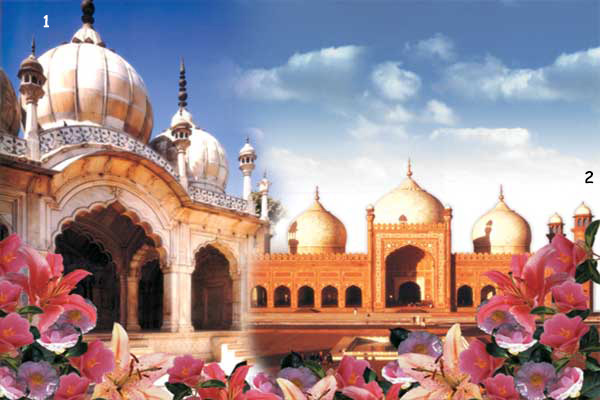 | |
| 1. Moti Masjid, 1662, Delhi | 2. Badshahi Mosque, 1673, Pakistan |
| The men and women of the believers are friends of one another. They command what is right and forbid what is wrong, and perform prayer and give the alms, and obey Allah and His Messenger. They are the people on whom Allah will have mercy. Allah is Almighty, All-Wise. (Surat at-Tawba: 71) | |
Our Lord also reveals that believers are one another's guardians (Surat at-Tawba: 71). The word "guardian" conveys such meanings as friend, helper, mentor, and protector. It also expresses the importance of cooperation and solidarity between Muslim nations. The cooperation that will arise from this fraternal awareness between Muslim nations will bring prosperity and wealth to Muslims and eradicate poverty, an important problem of the Islamic world. Societies that follow the Qur'an's values will not experience famine, destitution, and poverty. Muslims will develop their nations by following rational and long-term policies, establishing good relations with other nations and people, valuing trade and development, and learning from other cultures' experiences. This was so in history and, Allah willing, under the Turkish Islamic Union's leadership it will be so once again.
An Interview with Mr. Adnan Oktar By Mpl, November 21st, 2008 |
| Adnan Oktar: What comes to my mind when the Ottoman Empire is mentioned is justice, love, plenty, peace, respect, glory, kindness and beauty, and those glorious Ottoman domes, Ottoman music, Ottoman food, Ottoman manners, those great sayings and words in the Ottoman language and a splendid political mechanism that spread justice across the world. The world needs a new, modern Ottoman Empire in the way it needs water. In other words, a Turkish-Islamic Union under Turkish leadership, a great Turkish-Islamic Union supported by the Turkic states. That means the earth literally becoming a paradise. It means enormous economic wealth for Europe, America, Russia and China. That is because the oil and minerals of all Islamic and Turkic countries will flow to them. They will develop their own trade with the technical means and equipment to be acquired from there. They will come and build hospitals and plants and roads. We will go and do useful things in their workplaces. There will be a mutual exchange of technology, science and art. Terror will come to an immediate end. It will be stopped definitely and totally. There will be no money spent on terror. There are traditions telling us that as a result, since there will be security and stability, plenty and abundance will fall down like rain. There will be stupendous well-being. Our age is the Ottoman age. The age of a Turkish identity. It is the age of the Turkish-Islamic Union. It is the age when Islamic social justice and moral values will dominate. We will see all of this in the next 10 to 15 years, insha'Allah. … Turkish-Islamic Union will put an end to that joylessness. There will be an explosion of joy and happiness. There will be an air of rejoicing. Everyday will be like festival. Syria will still be Syria, for example, in the Turkish-Islamic Union, and all countries will retain their unitary structures. But they will be filled with a fervent love and great abundance. The opening of the borders and an end to oppression means stability. It means the lowering of taxes, an end to all the pressure on people's minds, in other words great well-being. |
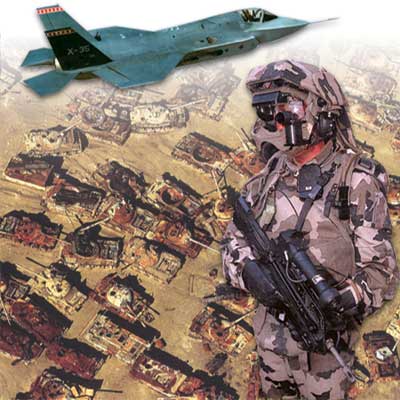 |
Instability does not affect a given region alone; rather, it has a negative impact on the world as a whole. The Islamic world is one such region. Therefore, Muslim nations should not be considered as separate and independent entities. Tensions in the Middle East are felt in North Africa. Events in the Caspian region affect the future of the Middle East. What happens in the Persian Gulf has a direct bearing on Southeast Asia, which means that such apparently regional conflicts, troubles, and tensions are felt throughout the entire Islamic world. Naturally, the same is true for peace. For example, solving such long-term conflicts as the Arab-Israeli war would have a positive effect throughout the Islamic world.
Throughout the twentieth century, a major part of the Islamic world remained locked in continuous warfare, conflict, and instability. The resulting waste of resources nearly brought economic development to a stand-still, caused living standards to drop to rock-bottom, and most importantly, cost the lives of millions of Muslims. Even now, intra-Muslim disputes and conflicts continue and engender tensions from time to time. Wars and conflicts between Muslim and non-Muslim nations are a great source of instability and discontent. One significant benefit of the Turkish Islamic Union is the role that it will play in delivering peace and security to the Islamic world. The Turkish Islamic Union must resolve intra-Muslim disputes and conflicts, as well as overcome the wars, conflicts, and tensions between them and non-Muslim countries, by peaceful and reconciliatory means. For example, an Arab-Israeli peace would have the following benefits for the Islamic world:
• Peace would enable each country to reduce military expenditures and divert financial resources to wealth-creation in society. As all Muslim countries would be members of the joint defense pact, they would achieve greater security and stronger defenses with a smaller budget. Investments now being made in the arms industry and technology could be channeled into educational, scientific, and cultural development. Consider the following facts: The total arms expenditure of Middle Eastern countries in 1991, when the Gulf war broke out, was $70.7 billion. Arms spending dropped to $52.2 billion during the following years, but soon began to increase again. Military spending stood at $61 billion in 2000 and $72 billion in 2001.
• Present instability and conflicts in the Islamic world cause many of the region's doctors, engineers, academics, scientists, thinkers, and writers to migrate to the West, where they continue their work, for they do not feel secure in their home countries. Research reveals that this migration from Arab countries has cost the Islamic world $200 billion. In fact, 450,000 of these migrants are college or university graduates.24 An environment of peace will eliminate internal tensions and end this migration. As a result, the work and skills of highly educated individuals will primarily benefit Muslims.
• Peace also will enable Muslim nations to share their accumulated knowledge and expertise, combine their forces in every area, and help
e another deal with their shortcomings. As a result, these nations will become far more effective in pursuing their national development plans.
• Economic development will gain momentum. At present, there are many disputes among Muslim nations, especially those involving borders, which only intensify economic problems. For instance, the source of the difficulties experienced in transporting and exporting trade goods is unsafe transport routes. This also is true for water, which is a major cause of conflict in the Middle East. Such conflicts could be resolved if Muslim countries would cooperate and resolve their disputes peacefully.
• Differences of culture and ethnicity will become a rich resource in an environment of peace, one that is characterized by compassion and dialogue. People will be more open-minded and productive, and such a diverse cultural mix will enable the rise of a new civilization.
• Peace also will strengthen Muslims living outside of the traditional Islamic world. Islam is one of the fastest growing religions in many non-Muslim countries. If these ethnically diverse groups of Muslims unite, they will further the spread of Islam and enable themselves to make a stronger cultural impression on their societies. The effectiveness of individual efforts made by small and separate Muslim communities is incomparable to the combined intellectual efforts made by a united alliance. Muslims of course will preserve their national identities; however, they will become a much stronger force if they act as one body guided by Islamic awareness and morality.
• A peaceful Islamic world will become a model for other countries, and existing conflicts will be resolved peacefully according to the example set by the Islamic world. Muslims will be living examples of finding peace and security when the Qur'an's values are practiced. In addition, they will bear witness to the fact that Islam is a religion of peace and compassion. Peace in the Islamic world might even guide many people to Islamic morality.
 |
So eat from what Allah has provided for you, lawful and good, and be thankful for the blessing of Allah if it is Him you worship. (Surat an-Nahl: 114) |
With the establishment of the Turkish Islamic Union, peace and security will take hold, economic problems will be resolved, and a massive cultural advancement will take place, for there will be growing budgets for education, science, and culture. In this way, Muslims will build a new civilization that will serve as a role model for the rest of the world. Practicing the unity and solidarity commanded by the Qur'an will cause its values to have a direct impact upon all Muslims' everyday life, art, decoration, fashion, medicine, science, and technology. Friendship and fraternal feelings will prosper, peace and order will rule social life, people will find more time to reflect and conduct research, and they will be more free-thinking and open-minded when they do so. Environments free of disorder, destitution, and troubles are places in which new ideas take shape, new products emerge, beneficial inventions are made, and continuing progress is achieved. The Turkish Islamic Union will create such an environment throughout the Islamic world.
In the book's first part, we examined the history of Islamic civilization. This civilization is an indicator of the environment in which future generations of Muslims will live. History shows that Muslims who practiced the Qur'an's values built a strong civilization that lasted for many centuries. In the Qur'an, Allah commands people to reflect, observe, and notice subtle details. Muslims are asked to ponder the beings in their surrounding environments, reflect on the order in which they live, and try to comprehend the wisdom behind it all. Our Lord says:
Have they not looked at the sky above them, how We structured it and made it beautiful, and how there are no fissures in it? And Earth, how We stretched it out, cast firmly embedded mountains onto it, and caused luxuriant plants of every kind to grow in it—an instruction and a reminder for every penitent human being. And We sent down blessed water from the sky and made gardens grow by it, and grain for harvesting and soaring date-palms with layered spathes. (Surah Qaf: 6-10)
Those who live by the Qur'an's values, who contemplate without coming under the spell of dogmas, false beliefs, or prejudices, ponder whatever they witness from all angles. As a result, they can see and consider ahead of their times. These qualities enable them to invent beneficial items for humanity and devise systems that ease the burdens of life and increase human comfort. The Turkish Islamic Union will open a new chapter in science and technology for the Islamic world, and, having acquired this vision, Muslims will build a civilization that produces science.
An Interview with Mr. Adnan Oktar By Baskent TV, February 13th, 2009 |
| Adnan Oktar: No economic union can survive without a spiritual foundation. Nobody will give anyone money or help anyone else, and no Islamic country will give anything to anyone else. The other Turkic states will not help anyone else. The result is a terrible egoism and selfishness. The aim of the Turkish-Islamic Union is a passionate and fervent love. It is fear and love of Allah and a spiritual excitement. People will have no greed in such a climate, and will rather give things away.If they have oil, they will tell others to take it away freely, they will give it as a gift. Turkey will send minerals to Saudi Arabia, for example. And they will send us oil. Workers will leave from here and go and labor for Allah's approval. And they will be paid a lot of money, again for Allah's approval. These things will flow in a climate of friendship and brotherhood. This foundation will bring about wealth. Prosperity will result from that generosity, friendship and altruism and from not being selfish and egotistical. If one approaches matters with egoism and selfishness, with a materialist mindset thinking merely in terms of economic unity, then there will be an economic selfishness everywhere. This selfishness will even stretch into the families. Families will become internally selfish, nations will become internally selfish, as cities and districts. Bonds and love among people will be severed. Wealth is inevitable in a climate of love.I will give money and opportunity to someone I love, and tell him to take free use of my car and home. I will give away all the money I make in my factory. You can have it, I will say. People are very joyous in the face of those they love. But these things are impossible without love. That is why the Turkish-Islamic Union will be based on love for Allah. This is very important. |
One area in which the Muslims' subtle thinking and deep awareness shows itself is art. At the core of art lie the abilities to reflect, notice subtleties, enjoy what is seen, and convey the resulting joy to others. The artistic awareness of someone who believes in and practices the Qur'an's values is of a superior nature, because Muslims consider art to be a Divine form of beauty, and works of art as objects that reflect Allah's Power and Might and the magnificence in Creation. In the Islamic world, artists are inspired by the beauty of Allah's Creation and thus produce works of art that are both inspired by the Qur'an's values and have unequaled depth, talent and intellect. With the formation of the Turkish Islamic Union, far more works of art will be produced that reflect the Muslims' sense of art, cities will be made more beautiful, spectacular buildings will rise, and the quality of life will increase immensely.
Islamic nations will be known for their cleanliness, order, works of art, cultural achievements, and technological developments. Their inhabitants will benefit from the means and comforts provided by technology, for prosperity, wealth, and beauty will dominate every aspect of life. Muslims will always meet with beauty, for their homes, gardens, house decorations, clothing, music, entertainment, theaters, cinemas, paintings, and conversations will reflect their inner spiritual beauty.
For all of this to take place, however, a great awakening must occur. False traditions, social structures, and mentalities that hold Muslims back must be removed and replaced with a Qur'an-based vision and morality so that the union will be rational, decisive, vibrant, and open-minded—just as it was with the first generations of Muslims. Islam does not require abstinence from the world; rather, Muslims are required to comprehend the world's true nature and then light the path for all people to follow. It is the Muslims' right to enjoy the blessings of this world. Those who believe sincerely and live by Allah's commands will experience all of the beautiful things that Allah has revealed in the Qur'an, one of which is a good life on Earth, as follows:
What is with you runs out, but what is with Allah goes on forever. Those who were steadfast will be recompensed according to the best of what they did. Anyone who acts rightly, male or female, being a believer, We will give them a good life and will recompense them according to the best of what they did. (Surat an-Nahl: 96-97)
"Let there be a community among you who calls to the good, enjoins the right, and forbids the wrong" (Surah Al 'Imran: 104). One of the Muslims' important duties is to command goodness, prevent evil, and call people to Islamic morality. However, the present disorder in the Islamic world prevents Muslims from fulfilling this duty, even though many non-Muslims have an increasing interest in Islam and the Qur'an's values. Allah's existence and oneness, the basic tenets of Islam, our Prophet's (may Allah bless him and grant him peace) life, the Qur'an's commands, and how Islamic society should be structured have now become common topics in the West. As interested people naturally direct such questions toward Muslims, Muslims must be able to represent Islam in the best possible way. In the West, this means through professional audio-visual productions, conferences and meetings, and publications. Moreover, on an individual basis they must serve as role models to the people with whom they come into contact.
An Interview with Mr. Adnan Oktar By Malatya TV, February 22nd, 2008 |
| Adnan Oktar: I would like to tell my brothers that, insha'Allah, the days that follow will be most excellent. Turkey will be great, and there will be great progress and unity in the Islamic and Turkish worlds. Civilization will take unimaginable steps forward. It will be, insha'Allah, as it was in the time of the Prophet Solomon (pbuh). It will be perfect, and will bring his days to mind. Actually, it will not be exactly like his age, since that has its own unique features in the Qur'an. Every age has its own unique characteristics in terms of splendor and power. It will all be perfect. We now need to strengthen our brotherhood, unity and union, avoid disputes, be compassionate in the face of differences between communities, regard these as a blessing, and hone our brotherhood to perfection. We must seriously stand up against Darwinism and materialism. People can make use of my books to do this and, as you know, can download them for free over the Internet. |
The Muslim Union is also necessary to resolve many problems caused by people's remoteness from religious morality. Circles that oppose religious morality work to make irreligion prevail and often coordinate their actions so that they can move forward in unison. Irrespective of how much their alliance is based on self-interest, their coordinated action makes it much easier for them to achieve their targets. Although every system of thought that opposes religious morality is destined to be defeated, Muslims must nevertheless engage these systems in a great ideological struggle to defeat them. For this reason, one of the Muslims' most urgent responsibilities is to drop their internal differences so that they can spread the Qur'an's values and invite people to the path of Allah. Our Lord reveals the believers' responsibility in this regard in the following verse:
Those who do not believe are the friends and protectors of one another. If you do not act in this way (protect each other), there will be turmoil in the land and great corruption. (Surat al-Anfal: 73)
The formation of the Turkish Islamic Union will increase the pace of all efforts made to spread the Qur'an's morality. As in many other areas, such a combined effort will be rewarded many times over, and true knowledge will reach all people far more quickly and in a much better manner. At present, Muslims are making individual as well as combined efforts to explain and spread Islam. However, the Turkish Islamic Union will make these efforts more practical and systematic. Furthermore, some people who claim to represent Islam but display aggression and crudeness, which are not part of Islam, will be defeated; true Islam will be defined; and the erroneous stereotypes created by certain people will be destroyed.
17. Demetrios Yiokaris, Islamic Leage Study Guide-1997, United Nations: Study Guides. Online at: www.vaxxine.com/cowac/islmclg1.htm.
18. "Islamic Countries have the resources to match the west, scientist", Arabic News.com, 28 May 2000. Online at: www.arabicnews.com/ansub/ Daily/Day/000628/2000062848.html.
19. Anthony H. Cordesman and Arleigh A. Burke, "The Gulf and Transition: Executive Summary and Major Policy Recommendations" (October 30, 2000).
20. Anthony H. Cordesman and Arleigh A. Burke, "The US Military and the Evolving Challenges in the Middle East" (March 9, 2002), 3.
21. Ibid.
22. Ibid., 4.
23. Jim Nichol, "Central Asia's New States: Political Developments and Implications for U.S. Interests," CRS (Congressional Research Service) Issue Brief for Congress (June 13, 2003). Online at: www.ncseonline.org/NLE/CRS/abstract.cfm?NLEid=16833.
24. "$200 billion, Arab loses of brain-drain," Arabic News.com, February 27, 2001. Online at: www.arabicnews.com/ansub/Daily/day/010227/2001022720.html.